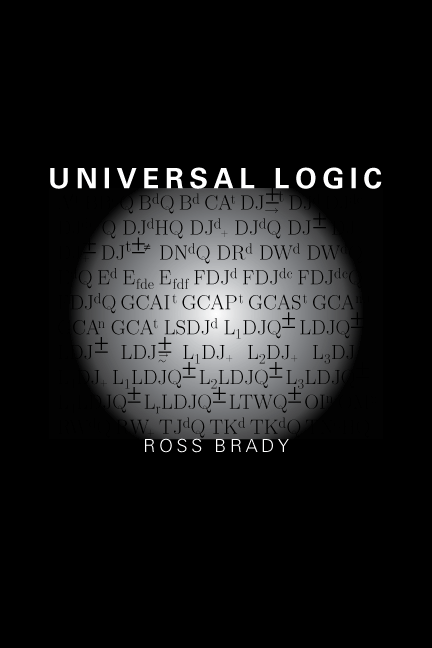The classical logic of Frege and Russell dominated formal logic in the 20th
century. But a new type of weak relevant logic may prove itself to be better
equipped to present new solutions to persisting paradoxes.
Universal Logic conceptualizes a new weak quantified relevant logic where
the main inference connective is understood as `meaning containment'. This
logic is intended to analyze naïve set/class theories. The volume begins
with an overview of classical logic and relevant logic, and discusses the
limitations of both types of logic in analyzing certain paradoxes. A summary
on the history of logic segues into the author's introduction of his new
logic modeled on the properties of set-theoretic containment. This book is
the first to demonstrate how the main set-theoretic and semantic paradoxes
can be solved in a systematic way, which is conceptualized independently of
the paradoxes themselves.
Ross Brady is a senior lecturer in philosophy at La Trobe University in
Australia.
- Preface
- 1 Philosophical Support for the Logic DJdQ
- 1.1 Classical Logic
- 1.2 Some Problems with Classical Logic
- 1.3 Relevant Logic
- 1.4 Some Problems with Relevant Logic
- 1.5 Setting up the Semantics of Meaning and Containment
- 1.6 Constraints on DJsupdQ
- 1.7 The Addition of Classical Sentences
- 1.8 The Solution of Paradoxes
- 2 Semantics for the Logic DJdQ
- 2.1 The Routley-Meyer Truth Functional Semantics
- 2.2 The Semantics of Meaning Containment
- 2.3 Quantified Content Semantics
- 3 Proof for the Logic DJdQ
- 3.1 Natural Deduction Systems
- 3.2 Gentzen Systems
- 4 Properties of the Logic DJdQ
- 4.1 Rules and Derived Rules
- 4.2 Meta-Completeness Properties
- 4.3 Depth Relevance
- 4.4 The Addition of Classical Formulae
- 5 Philosophical Support for the Theories of Classes and Sets
- 5.1 The Native Theory of Classes
- 5.2 Classicality and the Theory of Sets
- 5.3 Indeterminability
- 5.4 Consistent Dialectical Approaches
- 5.5 Non-ad hoc Solution to the Set-Theoretic Paradoxes
- 6 Simple Consistency of the Class Theory
- 6.1 The Simple Consistency Proof
- 6.2 The Practical Maximality of TNdQ
- 6.3 Non-triviality of Dialectical Class Theory
- 7 Simple Consistency of the Class Theory Combined with the Set Theory and Other Theories
- 7.1 Combining the Class Theory and Set Theory
- 7.2 The Simple Consistency of the Combined Theory CST
- 7.3 The Simple Consistency of CST, Together with Other Mathematical Theories
- 8 Simple Consistency of the Higher-Order Predicate Logic
- 8.1 The Predicate Logic
- 8.2 Simple Consistency of the Predicate Logic
- 8.3 Solution of the Semantic Paradoxes
- 9 Formal Development of the Axiomatic Theories
- 9.1 The Class Theory
- 9.2 The Set Theory
- 9.3 The Combined Theory of Classes and Sets
- 9.4 Arithmetical Theories
- 9.5 The Higher-Order Predicate Logic
- 10 Conclusion
- References
- Index
2/1/2006


